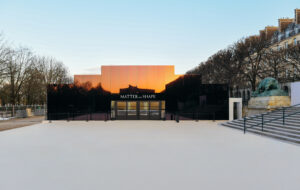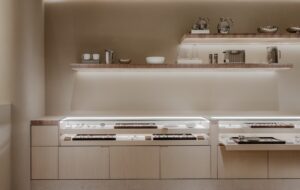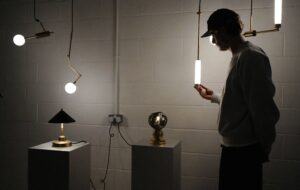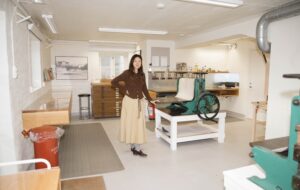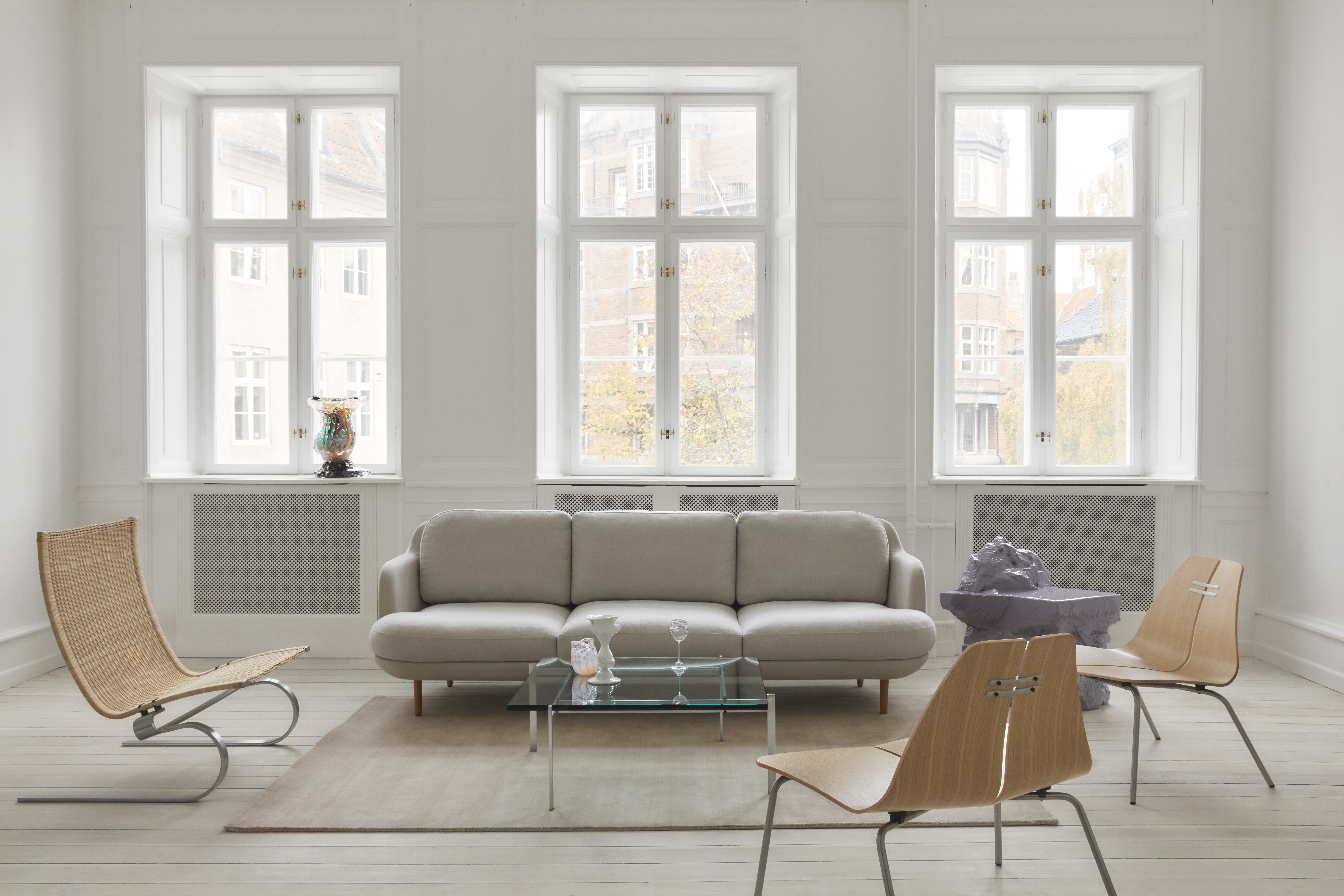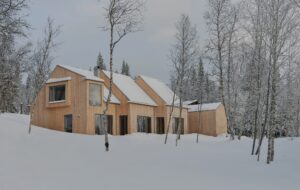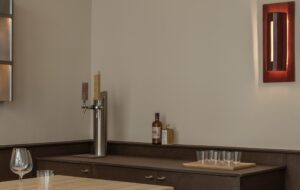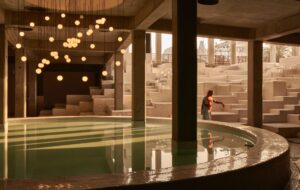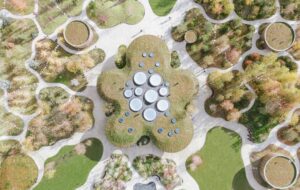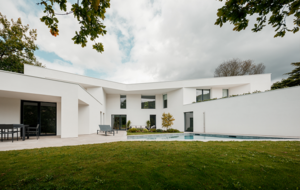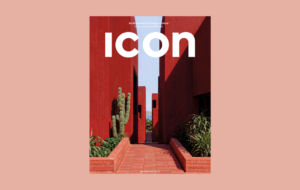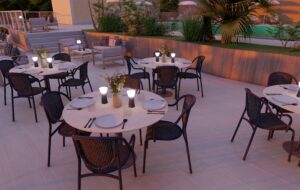Bringing together a wealth of design talent from across the country, Cape Town Furniture Week returned for its third year hosting a variety of exhibitions and events throughout the city drawing record numbers to the festival.
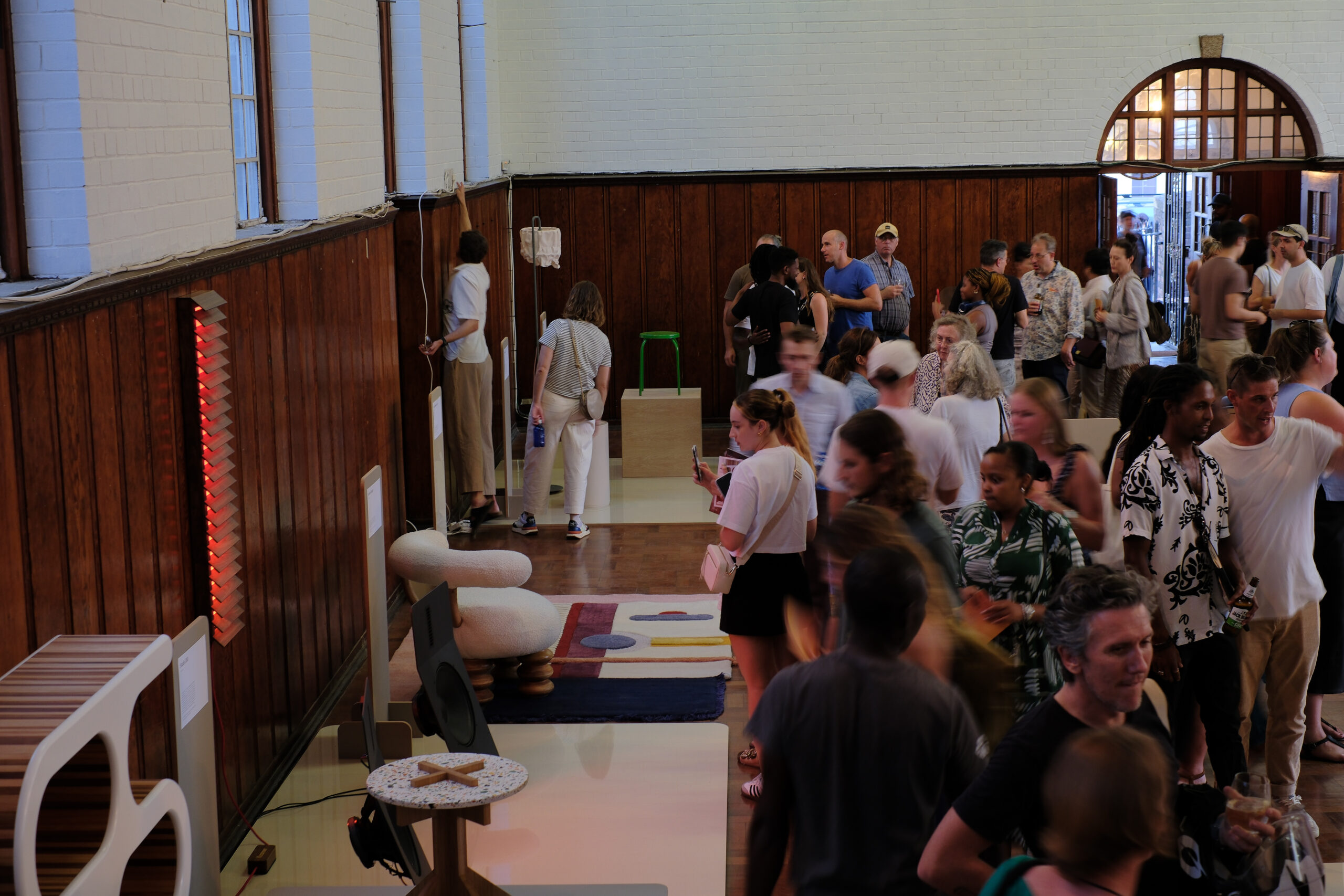 Cape Town Furniture Week returned for its third edition with nearly 3000 visitors passing through the festival hub on its opening night. Photography: Cape Town Furniture Week/Slater Studio
Cape Town Furniture Week returned for its third edition with nearly 3000 visitors passing through the festival hub on its opening night. Photography: Cape Town Furniture Week/Slater Studio
By Roddy Clarke
Returning to the Mother City for its third edition last month, Cape Town Furniture Week celebrated its largest festival yet, welcoming nearly 3000 visitors through the doors of its Church House hub on the opening night. Bringing together nearly 100 exhibitors, located in over 50 showrooms and event spaces across five design districts, this year’s event was a huge success, reminding us why regional design events are important for connection, community and collaboration.
The four-day event kicked off with series of panel talks and presentations, held in the recently reopened Cape Town Club, discussing critical topics centred on South African design and how it is finding traction across the global stage. Speakers such as fashion designer Sindiso Khumalo, furniture designer Haldane Martin, the founder of furniture and homewares store Daily, Joey Khuvutlu and Luke Pedersen of Pedersen + Lennard, were some of the names that took to the stage to explore current conversations around accessibility and sustainability while offering a positive glimpse into the innovation that is taking place across the region.
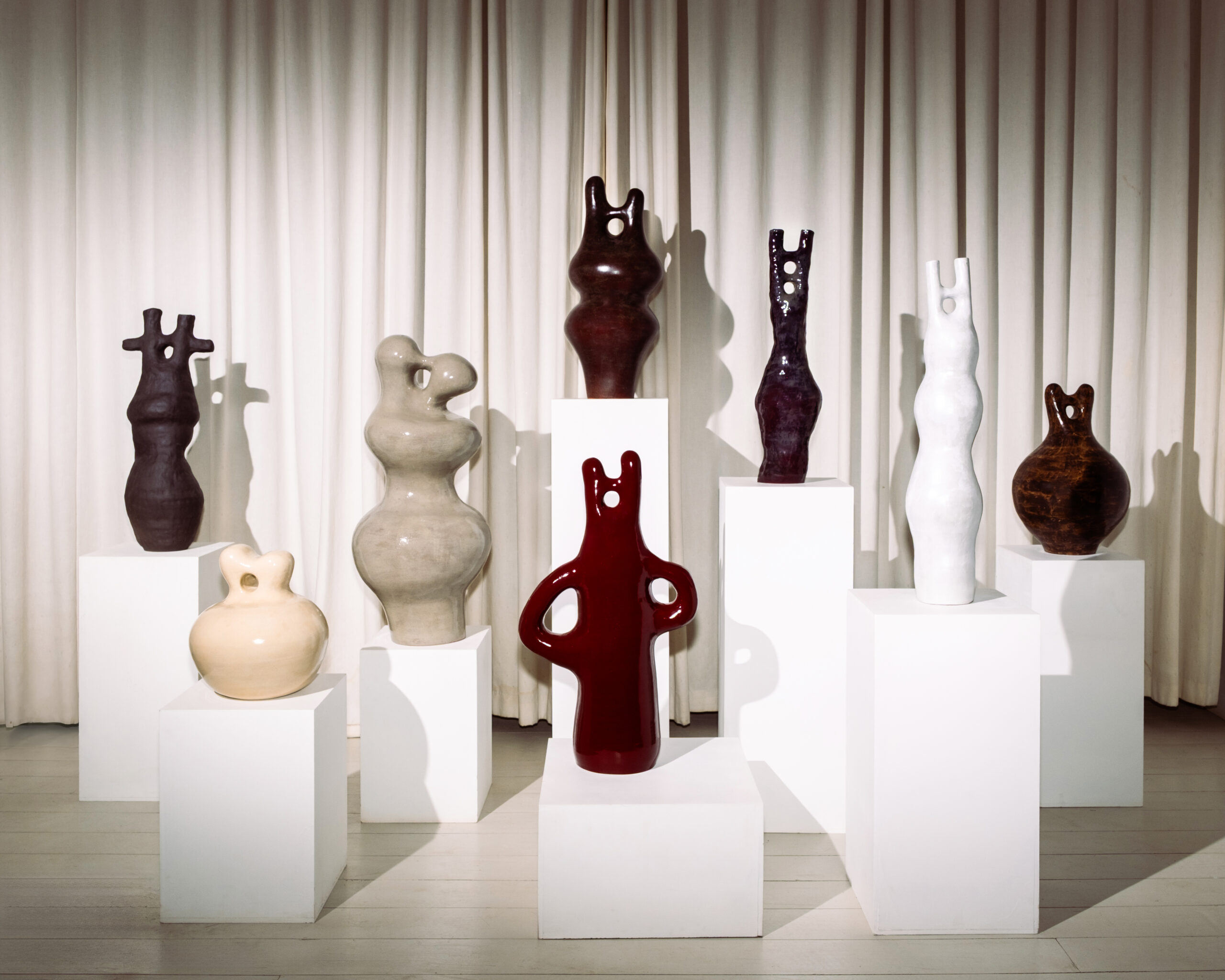 Showrooms and studios across the city opened their doors, with HAN studio displaying its new larger scale ceramic works. Photography: Sune Van Tonder
Showrooms and studios across the city opened their doors, with HAN studio displaying its new larger scale ceramic works. Photography: Sune Van Tonder
Curated by its founders, Gareth and Aimée Pearson, Cape Town Furniture Week focuses on furniture, lighting and homewares, with the festival’s hub this year presenting a collective exhibition showcasing a vast selection of new designs on display. Within the venue, visitors could also manufacture their own recycled plastic creations, thanks to an initiative conceived in partnership with Circular Squared, VISI, Plastic Pioneers and Melt Studio. Set across three floors, this exhibition was a great introduction for visitors outside of the country to obtain a glimpse into the diversity of design aesthetics and multi-disciplinary talent coming from the country. Studios took over individual rooms throughout the upper floors of the building, resulting in multi-sensory, immersive installations that held an experiential flair.
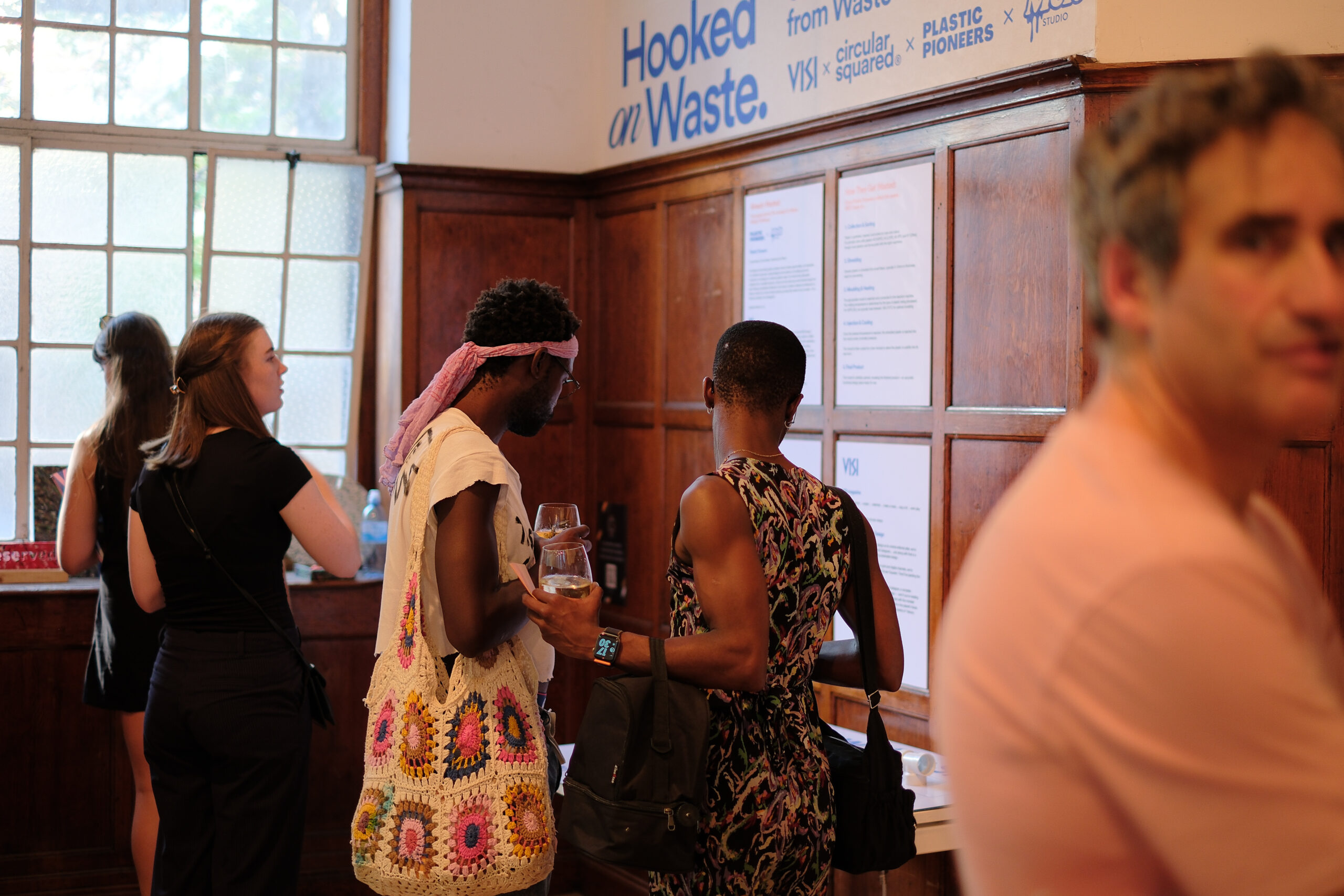 Interactive touch-points offered an immersive experience with visitors having the opportunity to make their own recycled plastic creations in the festivals hub. Photography: Cape Town Furniture Week/Slater Studio
Interactive touch-points offered an immersive experience with visitors having the opportunity to make their own recycled plastic creations in the festivals hub. Photography: Cape Town Furniture Week/Slater Studio
As part of this year’s edition, Cape Town Furniture Week also launched the Design Prize in partnership with VISI, celebrating and acknowledging new design from the region. This resulted in a collective exhibition that showcased the work of the 12 finalists before the winners were announced on the final evening of the festival. Speaking of the show’s success and growth across its first three editions, Gareth says how they started Cape Town Furniture Week as a response to the noticeable energy emerging within the local contemporary furniture industry. ‘We’ve been blown away by how it has been embraced as a platform by the industry, supported by both local audiences and the growing number of international visitors,’ he says. ‘It has been great to see the development of international collaborations too – we are looking forward to seeing more of that in 2026.’
While the wealth of talent was clear to see throughout each installation on display, here are some of ICON’s top highlights from the event:
Time-to-Time Bench by Woodbender
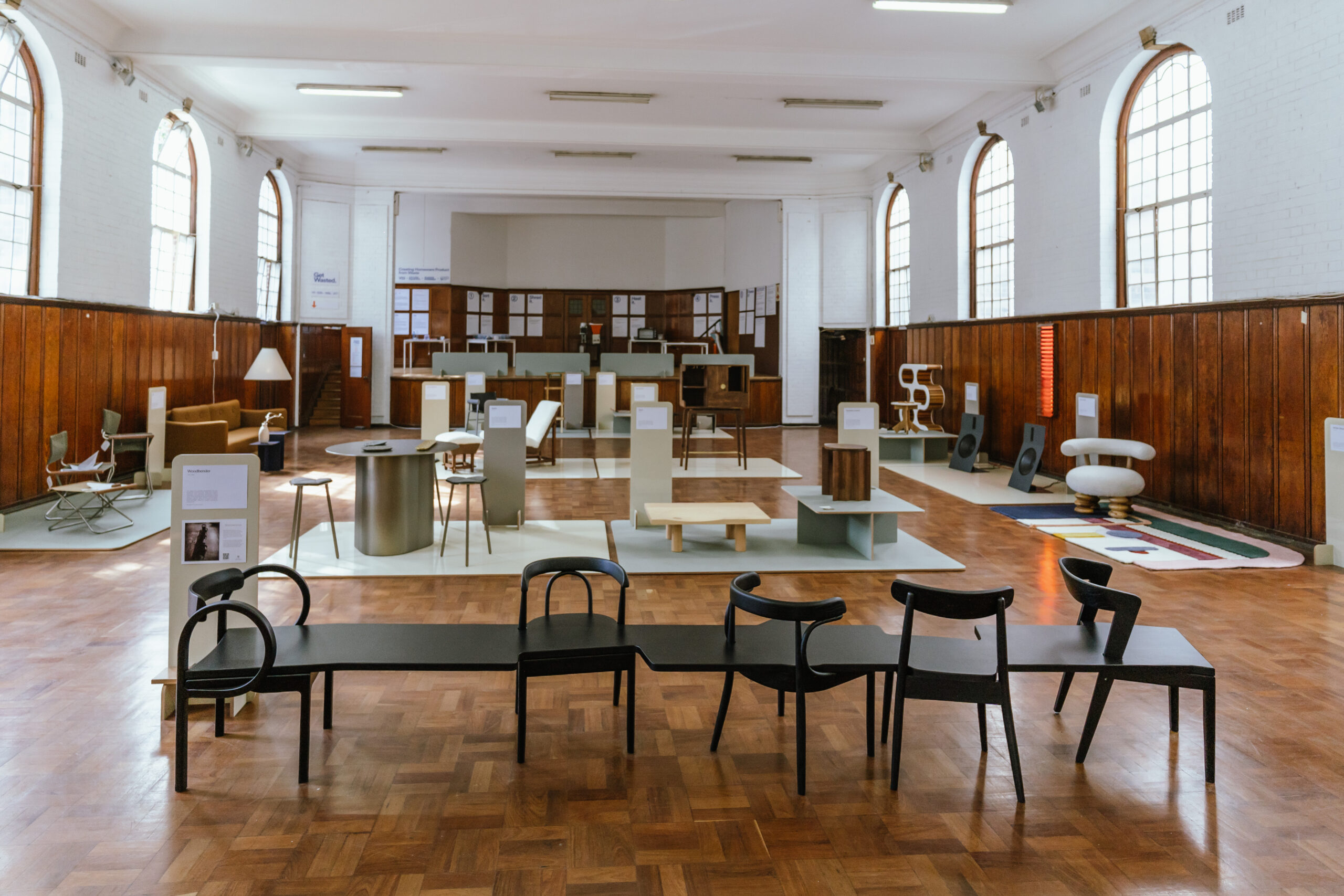 The Time-to-Time Bench by Woodbender was a stand out piece within the festival’s collective exhibition with it facilitating conversations and interaction between visitors throughout the week. Photography: Woodbender
The Time-to-Time Bench by Woodbender was a stand out piece within the festival’s collective exhibition with it facilitating conversations and interaction between visitors throughout the week. Photography: Woodbender
Paying tribute to the company’s heritage of craft and innovation, this bench showcased the artisanal quality of Woodbender’s steam-bending techniques, for which it has become renowned. Providing multiple places to sit, this communal bench exuded a sculptural quality, with its placement within the festival hub’s main hall offering a glimpse of how it could look within the public realm. ‘This piece tells our story through form, material, and technique,’ the studio’s Head of Design, Jordan Bailiff says. ‘It’s about honouring our past while embracing the possibilities of the future.’
Studio Kaja x Loading Bay
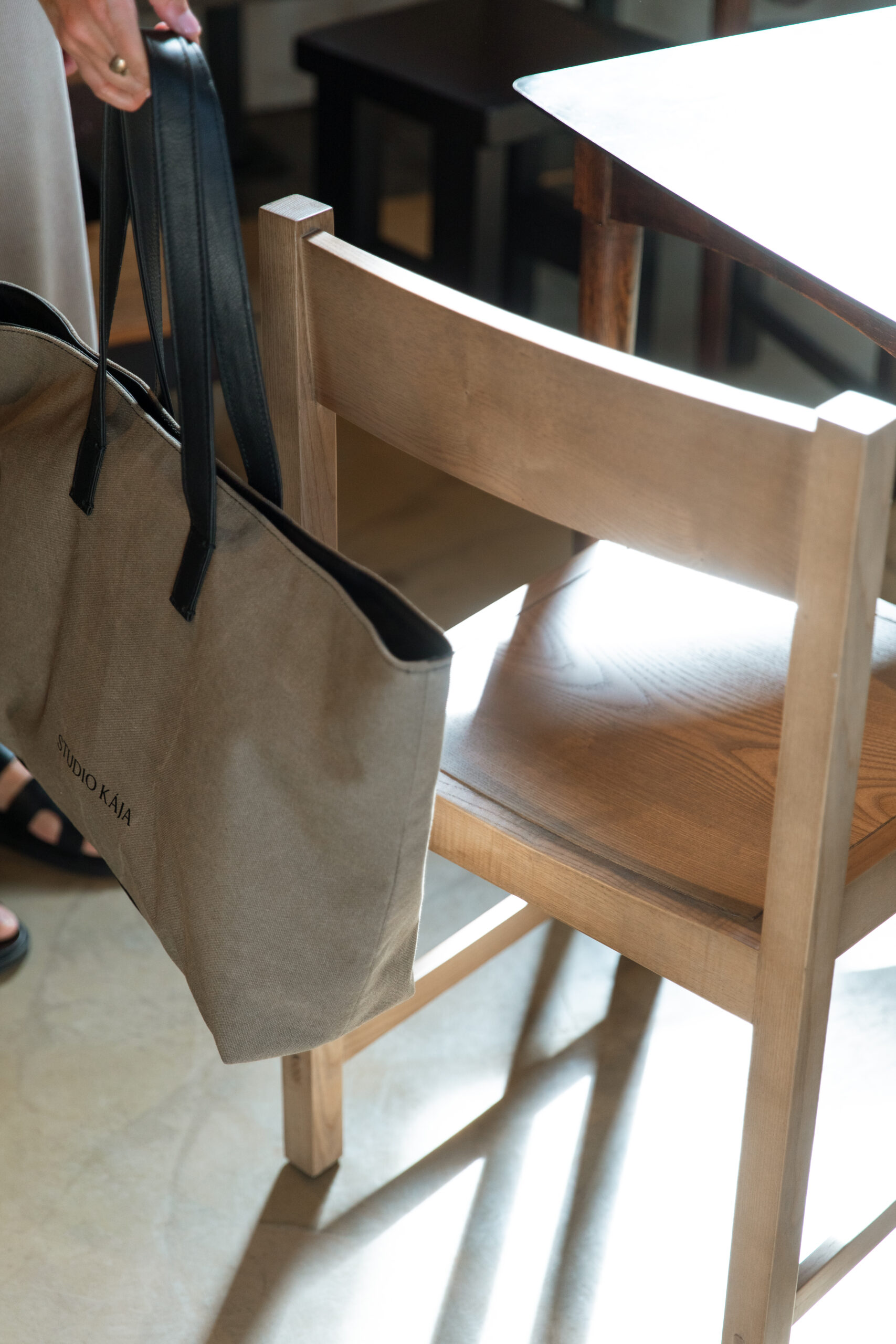 Visitors to popular local cafe Loading Bay were able to interact with the furniture and accessories of Studio Kaja as they took place within the cafe setting for the duration of the week. Photography: Cape Town Furniture Week/Hannah St Clair
Visitors to popular local cafe Loading Bay were able to interact with the furniture and accessories of Studio Kaja as they took place within the cafe setting for the duration of the week. Photography: Cape Town Furniture Week/Hannah St Clair
While many installations across design shows present furniture in conceptual settings, it is refreshing to see products displayed in realistic applications. Studio Kaja took the opportunity to stage its full collection within the vibrant setting of one of De Waterkant’s most popular cafes, Loading Bay. With visitors able to try out the chairs and observe the new lamps and accessories on display, while taking a much needed refuel between showroom visits, it highlighted the importance of giving people the opportunity to closely interact with furniture and homeware creations.
Unwrapped by N I S H
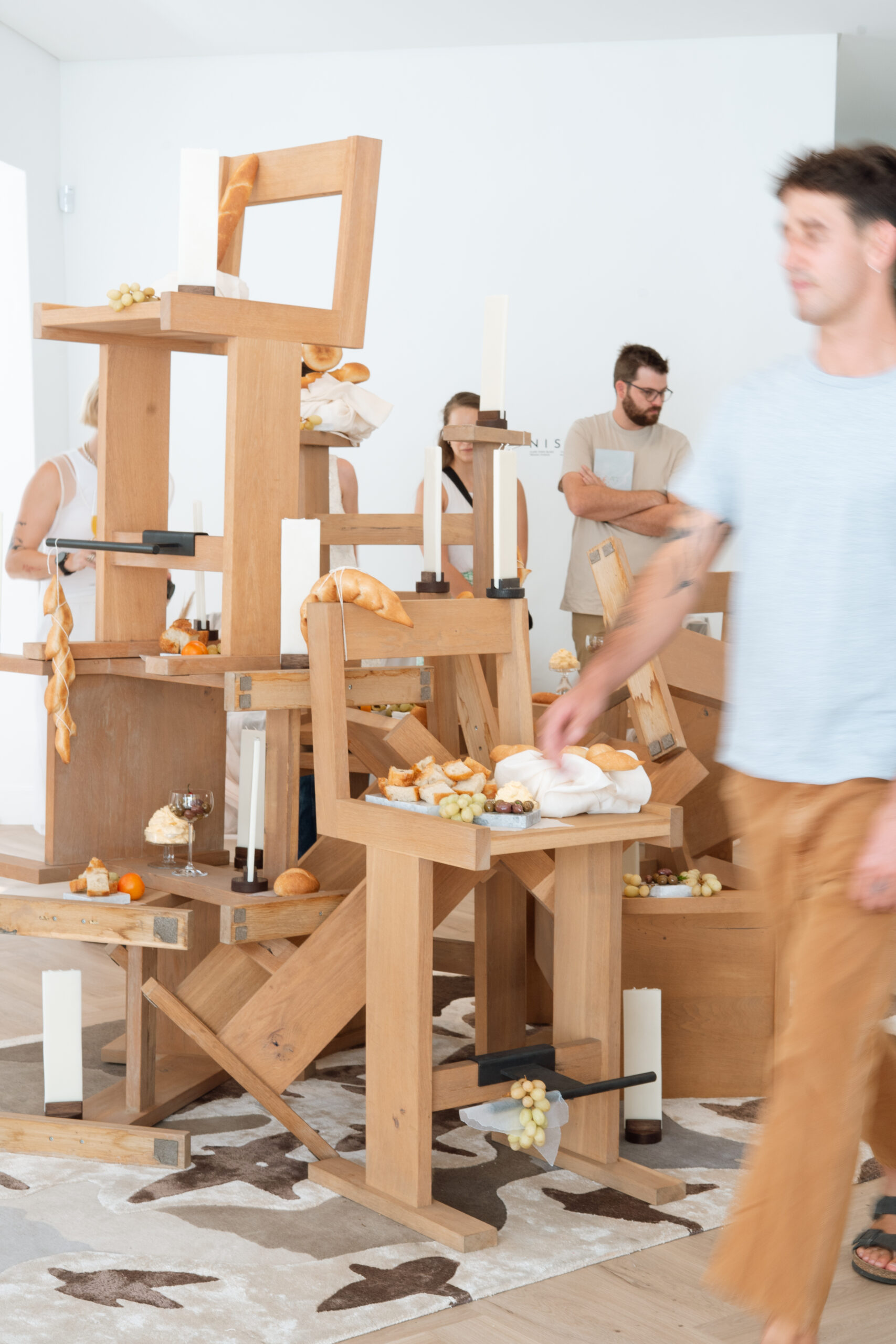 Unwrapped by N I S H offered visitors a glimpse into the making process behind the studio’s creations while showcasing works with an immersive and sculptural approach. Photography: Cape Town Furniture Week/Robynne
Unwrapped by N I S H offered visitors a glimpse into the making process behind the studio’s creations while showcasing works with an immersive and sculptural approach. Photography: Cape Town Furniture Week/Robynne
When contemplating the future of design weeks and the need for considered growth of such events, it is positive to see designers moving away from the pressure or expectation that new products must be created. Tanisha Neill, the creative force behind the Cape Town design studio N I S H, chose to engage audiences with the making process behind her pieces. Exhibiting on the last day of the event at the newly opened event space 156 Kloof, the installation ‘Unwrapped’ presented her existing works in new ways with a stacked centrepiece of chairs being utilised as a food station for visitors to interact with. Collaborating with several partners, the event was an welcome antidote to the fast-paced environments of some of the large-scale, commercial events that take place across the global design calendar.
The Weylandts x Thebe Magugu Sofa
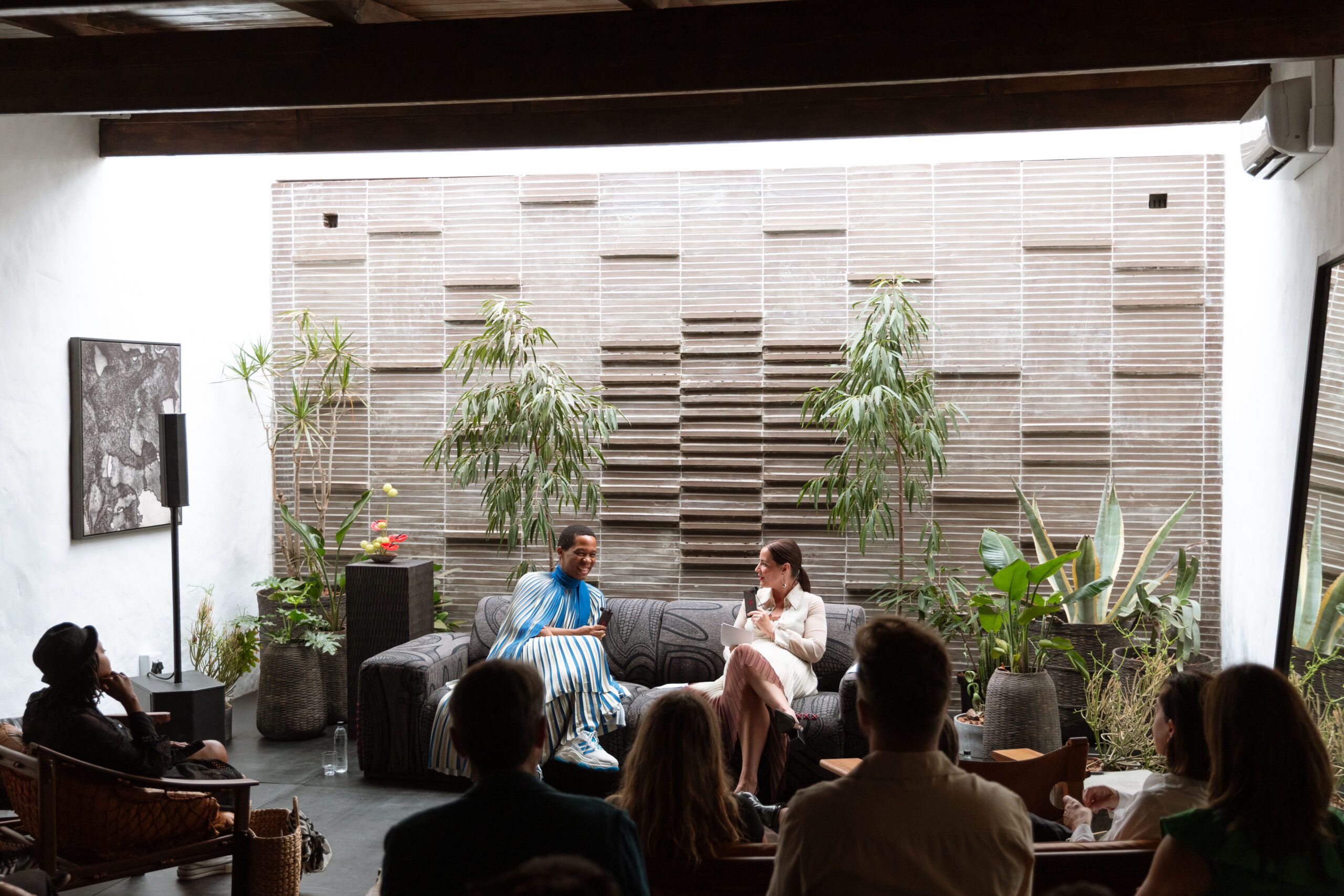 While displaying the sofa from their collaboration, Thebe Magugu and Anna Weylandt discuss the project on the opening night of Cape Town Furniture Week. Photography: Cape Town Furniture Week/Hannah St Clair
While displaying the sofa from their collaboration, Thebe Magugu and Anna Weylandt discuss the project on the opening night of Cape Town Furniture Week. Photography: Cape Town Furniture Week/Hannah St Clair
Displayed in a striking display in a pop-up showroom location, this creative collaboration effortlessly blended the fashion designer’s signature aesthetic with the timeless craftsmanship of Weylandts’ furniture. The limited-edition design was on display alongside a matching armchair, both upholstered in a fabric from one of Magugu’s capsule collections. Beautiful red leather stitching and framework allowed the statement pieces to stand out while amplifying the story of the collaboration even further. This was one of multiple cross-sector collaborations on display.
Ananta Design Studio
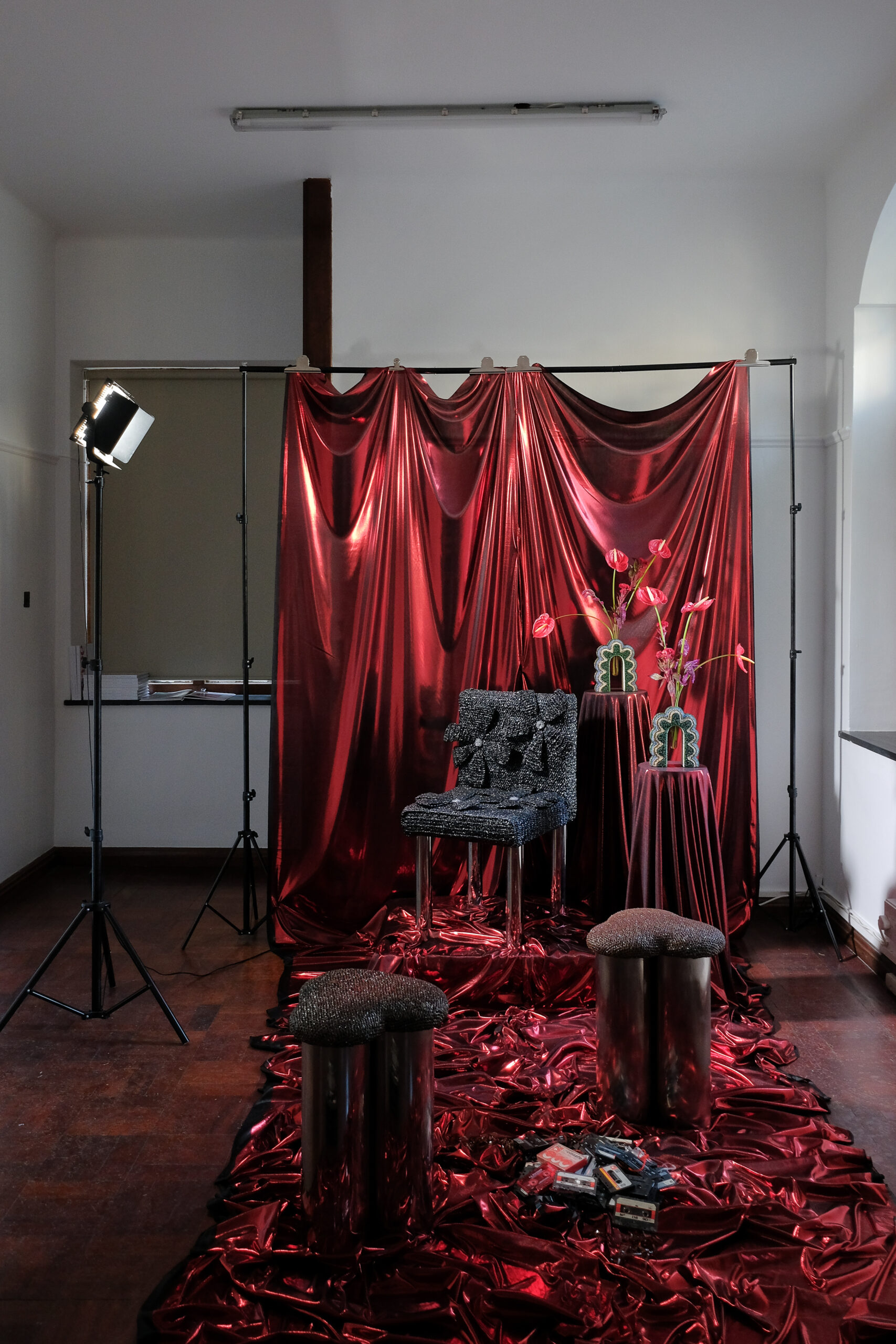 Ananta Design Studio presented the Bimba Chair and Masaruma Stool, both using textiles made from discarded audio and VHS tapes. Photography: Cape Town Furniture Week/Slater Studio
Ananta Design Studio presented the Bimba Chair and Masaruma Stool, both using textiles made from discarded audio and VHS tapes. Photography: Cape Town Furniture Week/Slater Studio
While taking part in multiple projects as part of the festival, sisters and the creative duo behind Ananta Design Studio, Viveka and Rucita Vassen, created an exciting display within Church House, displaying their Bimba chair and Masaruma Stool. Set against a vibrant red backdrop, it allowed the metallic creations to take centre stage, as visitors could examine the innovation behind the use of upcycled materials. Made from discarded audio and VHS tapes, it also offered a glimpse into the exciting creativity of the studio and its ability to blend circularity and collectible design through a fashion-forward lens – all while exuding a nostalgia that many would relate to.
The ‘Kaapenhagen’ Design Challenge
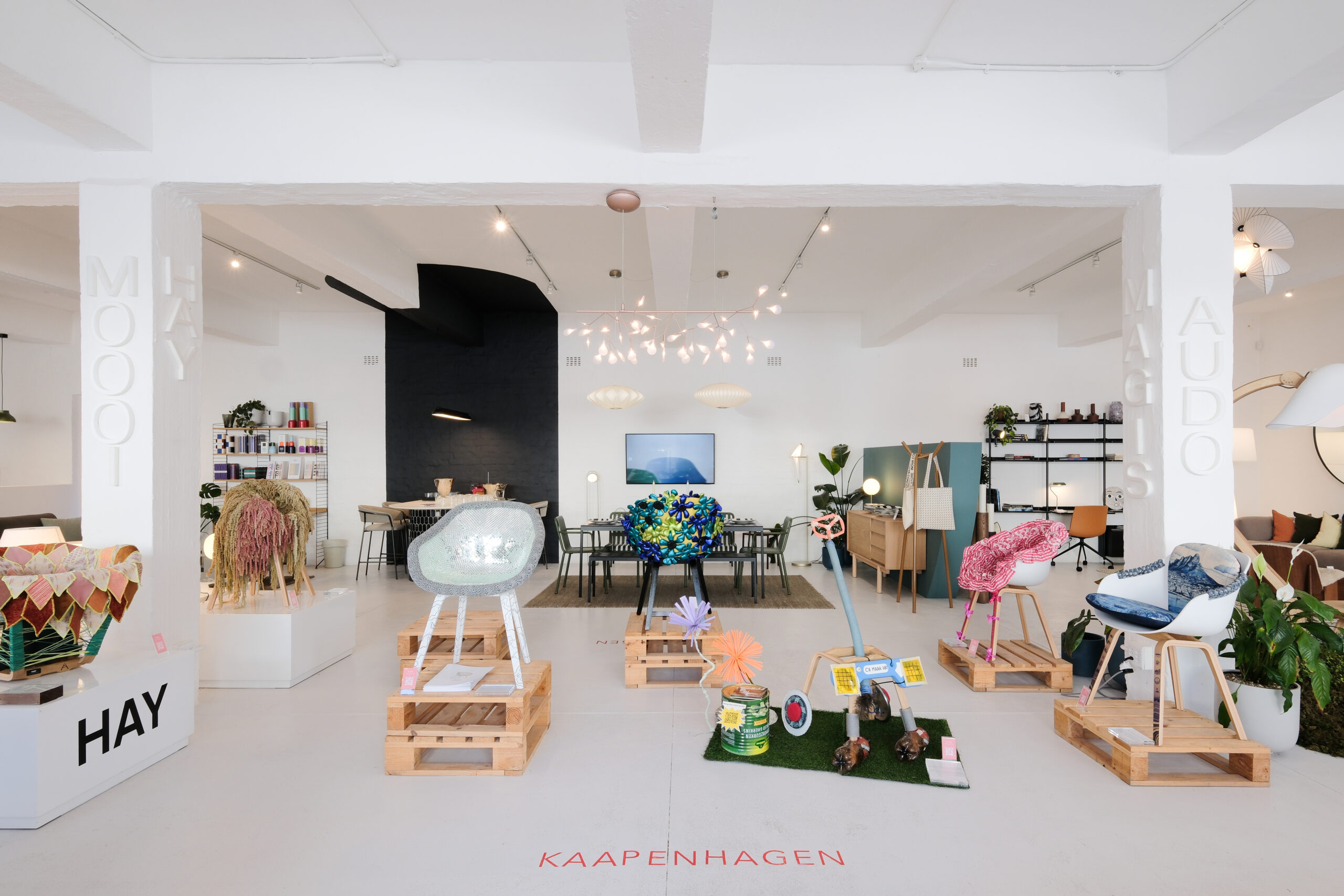 Hosted by Inova Concept Store in partnership with HAY, ten local studios were asked to reinvent the Danish brand’s AAC 222 chair with the public invited to vote for their favourite. Photography: Cape Town Furniture Week/Slater Studio
Hosted by Inova Concept Store in partnership with HAY, ten local studios were asked to reinvent the Danish brand’s AAC 222 chair with the public invited to vote for their favourite. Photography: Cape Town Furniture Week/Slater Studio
Hosted by Inova Concept Store in partnership with Danish design house HAY, ten local designers were asked to reimagine the brand’s iconic AAC 222 chairs. Resulting in a range of interpretations, visitors to the store throughout the week were asked to vote for their favourite, with the winner being architectural studio Paragon Group, who’s chair ‘You are Cape Town!’ featured a mirrored mosaic surface that referenced how the city is shaped by its people and landscapes and the ever-changing interplay between the two.
SP002 by Studio Jarvis
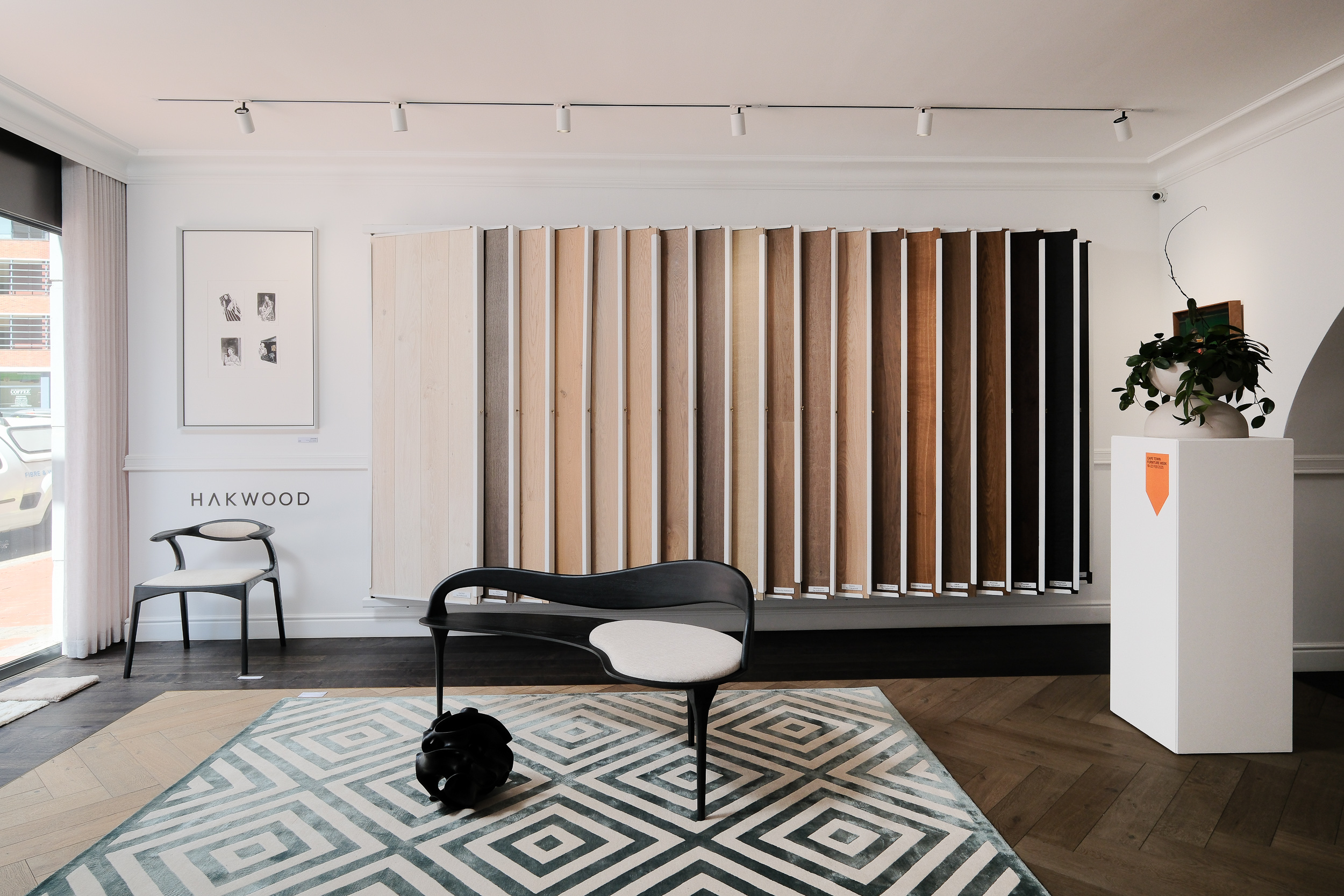 The SP002 Bench by Studio Jarvis was one of the 12 shortlisted designs for the festival’s inaugural Design Prize in partnership with VISI before going on to win the design category. Photography: Cape Town Furniture Week/Slater Studio
The SP002 Bench by Studio Jarvis was one of the 12 shortlisted designs for the festival’s inaugural Design Prize in partnership with VISI before going on to win the design category. Photography: Cape Town Furniture Week/Slater Studio
The winner of the design category of Cape Town Furniture Week Design Prize, the sculptural bench by Studio Jarvis turned heads thanks to its elevated aesthetic and refined craftsmanship. Designed by the studio’s founder Jarvis Ball and handcrafted locally by AOS Creations, the bench’s carbon ash frame is beautifully complemented with Belgian linen upholstery resulting in a statement piece that suits both classic and contemporary interiors. ‘The work is a response to straight lines,’ comments Ball when discussing the inspiration behind his creation. ‘As furniture makers, so much of what we do is straight lines and right angles. Our saws cut straight and square, our planes plane true and flat. This piece is a conscious revolt against that.’
Katherine Pichulik x Matteo Cibic
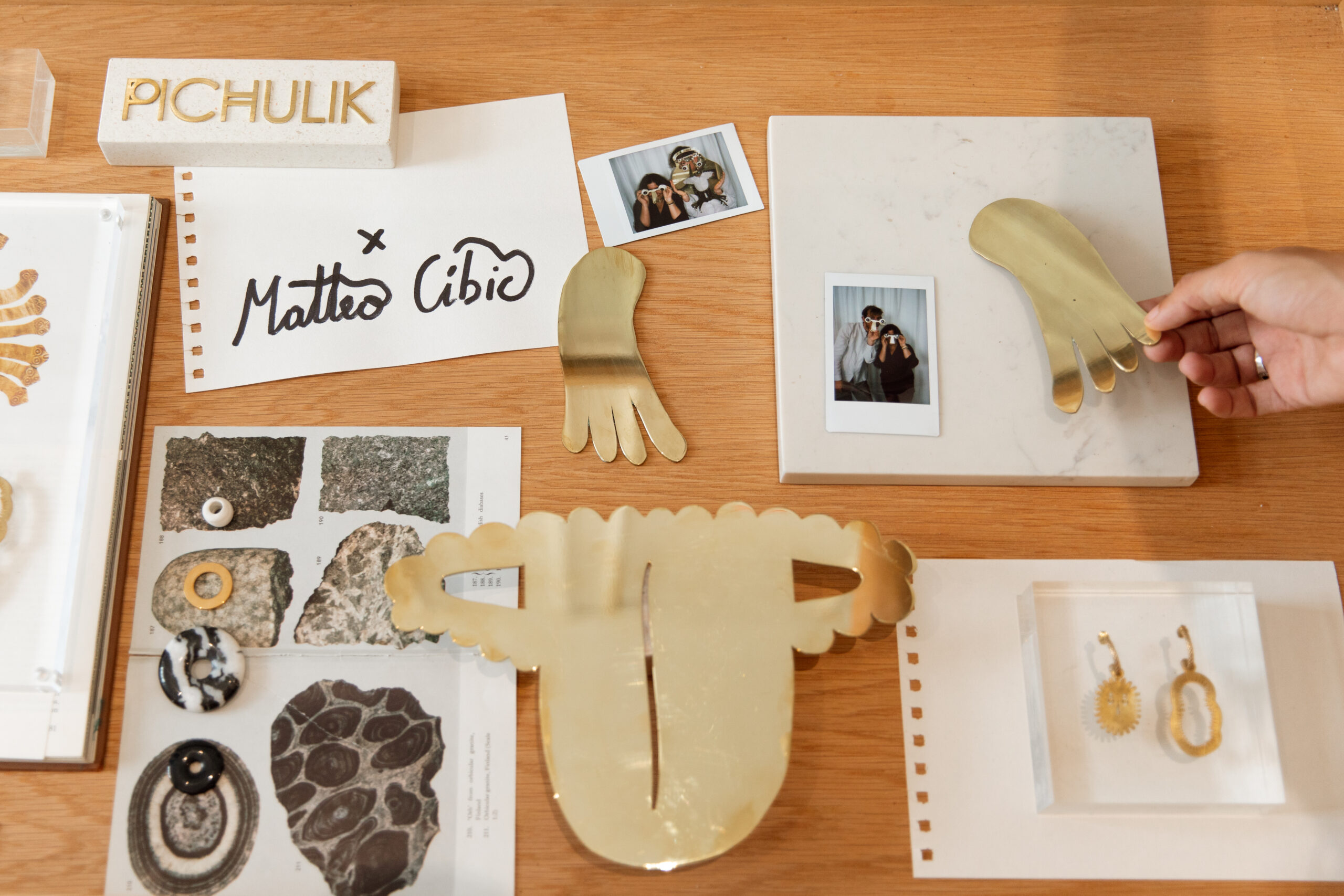 Italian designer Matteo Cibic collaborated with local jewellery designer Katherine Pichulik as part of an experimental research project that resulted in ‘Mametongue’ – a collection of decorative wall sconces and sculptural jewellery. Photography: Cape Town Furniture Week/Hannah St Clair
Italian designer Matteo Cibic collaborated with local jewellery designer Katherine Pichulik as part of an experimental research project that resulted in ‘Mametongue’ – a collection of decorative wall sconces and sculptural jewellery. Photography: Cape Town Furniture Week/Hannah St Clair
Facilitated by the Consulate of Italy in Cape Town, this experimental research project between jewellery designer Katherine Pichulik and multidisciplinary Italian designer Matteo Cibic resulted in a unique collected titled ‘MAMATONGUE’. Featuring decorative wall sconces and elaborate jewellery designs, the project beautifully merged Cibic’s surrealist inspired creativity with Pichulik’s sculptural sensitivity. The creative exchange was exciting to witness between the two designers, with each of them bringing their unique charm and charisma to the project, showcasing the beauty found in cross-sector and cross-cultural collaborations.
Cape Town Furniture Week took place 19-22 February 2025 and ICON was the festival’s International Media Partner.
Get a curated collection of design and architecture news in your inbox by signing up to our ICON Weekly newsletter

